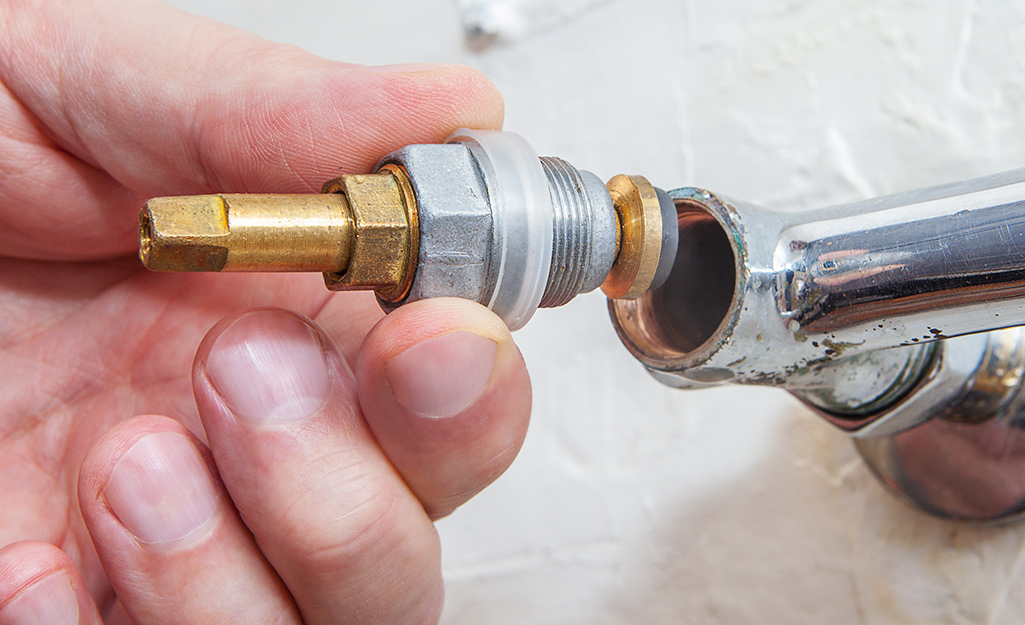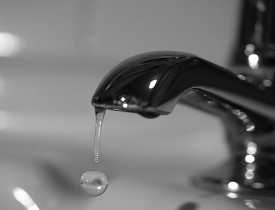How It's Mandatory to Deal with a Malfunctioning Faucet
How It's Mandatory to Deal with a Malfunctioning Faucet
Blog Article
Just how do you really feel with regards to Leaky Faucets: Why They Happen & What to Do About Them?

Trickling faucets might feel like a minor hassle, yet their effect goes beyond simply the nuisance of the sound. From drainage to sustaining unnecessary financial prices and health and wellness risks, neglecting a leaking tap can cause various effects. In this post, we'll delve into why it's vital to resolve this common house problem promptly and successfully.
Wastage of Water
Ecological Impact
Trickling faucets contribute significantly to water waste. According to the Environmental Protection Agency (EPA), a solitary faucet leaking at one drip per secondly can squander greater than 3,000 gallons of water per year. This not just strains water sources yet also impacts communities and wild animals dependent on them.
Step-by-Step Overview to Fixing a Dripping Faucet
Devices Called for
Before attempting to deal with a dripping faucet, collect the essential tools, consisting of a flexible wrench, screwdrivers, replacement components (such as washing machines or cartridges), and plumber's tape.
Usual Faucet Issues and Their Solutions
Identify the kind of tap and the details issue triggering the drip. Typical troubles include worn-out washing machines, corroded valve seats, or damaged O-rings. Describe maker instructions or on the internet tutorials for detailed guidance on repair work.
Financial Expenses
Increased Water Expenses
Beyond the environmental effect, leaking faucets can pump up water bills significantly. The collected wastefulness over time translates into higher utility expenses, which could have been avoided with timely repairs.
Potential Property Damages
Moreover, long term leaking can bring about damage to fixtures and surfaces surrounding the faucet. Water buildup can trigger staining, rust, and also structural issues if left neglected, causing added fixing expenses.
Wellness Worries
Mold and Mildew Growth
The consistent visibility of wetness from a dripping tap develops a suitable atmosphere for mold and mold growth. These fungi not just jeopardize interior air high quality however also posture health and wellness dangers, particularly for individuals with respiratory system problems or allergies.
Waterborne Conditions
Stagnant water in dripping taps can end up being a breeding place for germs and other microorganisms, enhancing the risk of waterborne illness. Contaminants such as Legionella microorganisms flourish in stationary water, potentially bring about major illnesses when ingested or breathed in.
DIY vs. Professional Repair service
Advantages and disadvantages of Do It Yourself Repair Work
While some might attempt to take care of a trickling faucet themselves, DIY fixings include their very own set of difficulties. Without correct understanding and devices, do it yourself attempts can aggravate the issue or cause insufficient repairs, extending the trouble.
Benefits of Employing a Specialist Plumber
Hiring an expert plumber makes sure that the underlying cause of the dripping tap is resolved effectively. Plumbings have the expertise and equipment to identify and repair tap concerns successfully, conserving time and minimizing the risk of additional damage.
Ecological Obligation
Private Payment to Preservation
Taking duty for dealing with trickling taps straightens with broader initiatives towards water preservation and ecological sustainability. Every individual's actions jointly make a substantial influence on maintaining priceless sources.
Lasting Living Practices
By focusing on timely repair services and embracing water-saving routines, people add to sustainable living practices that benefit both existing and future generations.
Safety nets
Routine Maintenance Tips
To prevent dripping faucets, execute regular upkeep such as cleaning up aerators, checking for leaks, and replacing worn-out components without delay. Furthermore, think about installing water-saving devices or updating to extra reliable fixtures.
Significance of Prompt Repairs
Addressing trickling faucets as quickly as they're seen stops further water wastage and prospective damage, ultimately conserving both water and money in the long run.
Influence On Building Worth
Perception of Well-Maintained Property
Maintaining a property in good condition, including attending to maintenance concerns like trickling taps, enhances its regarded worth and desirability among potential purchasers or occupants.
Impact on Resale Worth
Features with well-kept plumbing components, including taps, command higher resale values in the property market. Attending to trickling faucets can contribute to a favorable impact during property assessments and negotiations.
Final thought
Resolving a leaking tap goes beyond simple comfort; it's an essential step towards preserving water, lowering economic prices, and protecting health and wellness and property. Whether through DIY fixings or specialist assistance, acting to take care of trickling faucets is a small yet impactful means to promote responsible stewardship of resources and add to a much healthier, extra lasting future.
How to Fix a Dripping or Leaky Faucet
A leaking faucet is one of the most common problems that homeowners encounter, but it being commonplace doesn’t make it any less annoying. The constant drip drip drip of a leaking bathtub faucet, showerhead, or sink tap can disturb your home’s serenity. Left neglected, a dripping faucet can also result in higher water bills and discoloration or mold growth in your sink or plumbing fixtures.
Fortunately, you don’t have to be a trained plumber to know how to stop a dripping faucet. With some basic tools, replacement parts, and a little patience, leaky faucet repair is a breeze. In this article, we’ll explain what causes dripping faucets and how you can fix them.
What Causes a Leaking Faucet?
Kitchen and bathroom faucets come in all manner of designs, but most involve some combination of valves, O-rings, seals, and washers. The O-ring is usually the weakest link, but any one of these pieces can wear down over time. Heat, moisture, temperature fluctuations, minerals, mold, and movement can contribute to warping and corrosion, breaking the watertight seal. This just comes with the territory of being a homeowner. Everything is always subject to wear and tear, and some component parts of your appliances and fixtures need to be replaced on occasion. At least replacement O-rings are cheap!
More rarely, dripping faucets can be a symptom of excessively high water pressure. Were this the case in your home, you would probably notice that the leak is not isolated to one faucet. Water pressure issues are harder to resolve on your own. We recommend contacting a professional plumber if you suspect your water pressure is too high.
How to Fix a Dripping Faucet
Pipe wrench or monkey wrench Allen wrench set Screwdrivers Old towel or rag Shut off the water.
Before you do anything, you need to turn off the water to keep from drenching your kitchen or bathroom. You should find a valve under the sink and against the wall. Once you’ve turned this valve, try turning the faucet on to confirm that the water source has been cut off.
If you can’t locate your local valve for the faucet you’re working on, you can always shut off the water to the house at the main valve. Of course, this will prohibit anyone from using the sinks, showers, or toilets while you’re working on the faucet that’s giving you trouble.
Plug or block the drain.
You’ll be disassembling the faucet and removing some small bits of hardware. Plug the drain with a stopper or rag to avoid the possibility of a small screw falling into your P-trap.
Take apart the faucet assembly.
There are several varieties of kitchen and bathroom faucets, each with its own manner of assembly. For detailed instructions on how to disassemble your faucet, you can refer to the fixture’s manual or contact the manufacturer. If you know whether you have a ball, disc, cartridge, or compression faucet, you can find detailed schematics online.
In general, you need to begin by removing the faucet handles. You might notice a small screw that you’ll need to remove with a screwdriver or Allen wrench. If you don’t see any visible securing hardware, it’s likely hidden under a decorative cap that can be unscrewed or popped off with flathead screwdriver.
Remove each piece methodically, consulting a schematic when necessary. Take notes or arrange the pieces in such a way to make it easier to correctly reassemble the faucet later.
Remove the cartridge.
Once you’ve removed the handles and securing hardware, you should be able to remove the valve cartridge or stem. Some cartridges will slide right out. Other faucet models will require you to loosen a nut with a pipe wrench before you can remove the valve stem.
Examine the exposed hardware.
With the cartridge or stem removed, inspect the component parts. Check the rubber O-rings for wear and tear. Also examine the seat washer for corrosion or other damage. These pieces are usually the responsible parties for a dripping faucet, but it’s worth inspecting the other component parts while you have the faucet disassembled.
Find replacement parts.
Once you’ve identified which faucet component has failed, find an identical replacement. Your local hardware store should have O-rings, seat washers, and other standard components in stock. If you have a luxury or uncommon faucet, you may have to contact the manufacturer for a replacement part.
It’s a good idea to take your old parts with you to the hardware store so you can compare them with the store’s inventory and be sure you’re purchasing the correct replacement.
Reassemble the faucet.
With your new parts in hand, reconstruct the faucet and handles. Don’t be tempted to overtighten screws or nuts. You might think this could create a better seal, but it can instead damage or bend a delicate part of the assembly and create a new problem for you.
Turn on the water and test the faucet.
The only thing left to do is test your work. Unplug the sink, turn the water back on, and try the faucet. Congratulate yourself on a job well done!
https://www.libertyhomeguard.com/how-to-fix-a-dripping-or-leaky-faucet/

As a serious person who reads about , I thought sharing that portion was a great idea. For those who enjoyed reading our blog posting kindly don't forget to pass it around. Kudos for your time. Come back soon.
Report this page